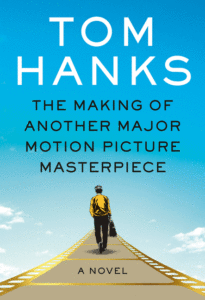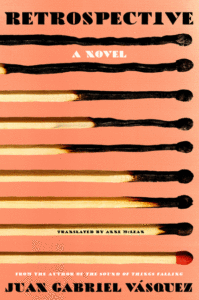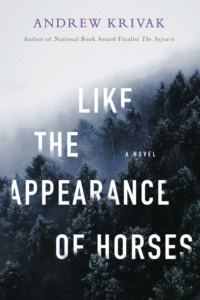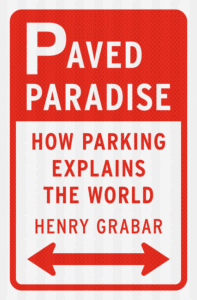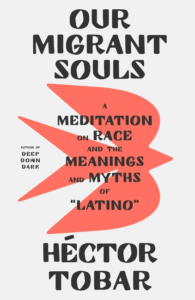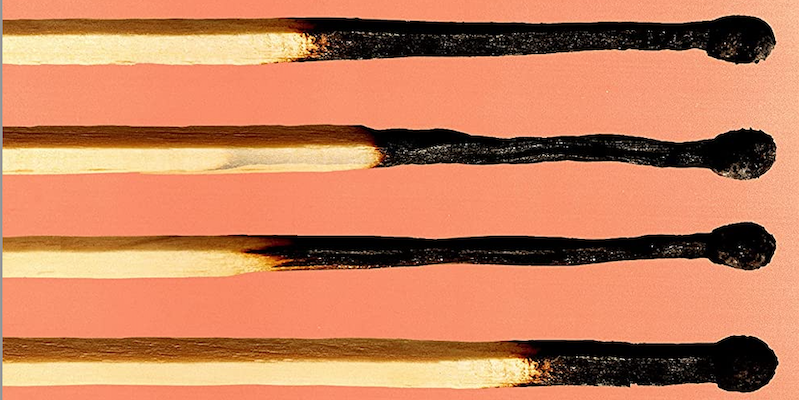
What Should You Read Next? Here Are the Best Reviewed Books of the Week
Featuring New Titles by Tom Hanks, Juan Gabriel Vásquez, Héctor Tobar, and More

Tom Hanks’ The Making of Another Major Motion Picture Masterpiece, Juan Gabriel Vásquez’s Retrospective, and Héctor Tobar’s Our Migrant Souls all feature among the Best Reviewed Books of the Week.
Brought to you by Book Marks, Lit Hub’s “Rotten Tomatoes for books.”
*
1. The Making of Another Major Motion Picture Masterpiece by Tom Hanks
(Knopf)
3 Rave • 6 Positive • 4 Mixed • 2 Pan
“Charming…spiritually revealing … So far as I can tell, Hanks’s book is not a roman à clef or a camouflaged tell-all or a sly act of disguised payback. Instead, it’s a novel shot in pastel tones … Except for a few nods to entrenched sexism, the industry’s well-documented abuses are elided in favor of concentrating on the better angels of its nature … A thoroughly engaging tale.”
–Ron Charles (The Washington Post)
2. Retrospective by Juan Gabriel Vásquez
(Riverhead)
2 Rave • 3 Positive • 2 Mixed
“Eloquently translated … Cabrera’s life, one quickly realizes, covers a wide and rich canvas … Vásquez recorded more than thirty hours of conversation with Cabrera over the course of seven years, and has distilled the filmmaker’s memories into a meaningful narrative … Any novel balances summary and scene, telling and showing, but this is a novel largely of telling, because there is much to impart.”
–Claire Messud (Harper’s)
3. Like the Appearance of Horses by Andrew Krivak
(Bellevue Literary Press)
3 Rave • 1 Positive
Read an excerpt from Like the Appearance of Horses here
“Krivak’s prose is earthy, assured, and exquisitely rendered in evocative descriptions of the natural world juxtaposed with visceral combat scenes. The language is lush, alternating in cadence to reflect the action and settings. The accounts of survival in war-torn countries are particularly striking, illustrating the dichotomy of beauty and death. Krivak is equally adept at exploring the emotional sinews connecting family, community, and country.”
–Bill Kelly (Booklist)
**
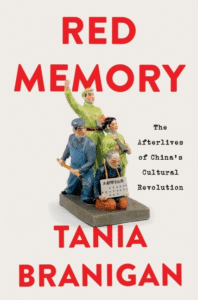
1. Red Memory: The Afterlives of China’s Cultural Revolution by Tania Branigan
(W. W. Norton and Company)
6 Rave • 1 Positive • 1 Mixed
Read an excerpt from Red Memory here
“At the heart of Branigan’s book is a series of remarkable interviews which she says would not be possible to conduct under the more restrictive environment for reporters in Xi Jinping’s China today … Branigan tells her subjects’ stories well and she is an excellent listener, so that they speak frankly about how they felt then and now as well as describing what they experienced.”
–Denis Staunton (The Irish Times)
2. Paved Paradise: How Parking Explains the World by Henry Grabar
(Penguin Press)
2 Rave • 5 Positive
“Wry and revelatory … Grabar, who writes for Slate, does this now and again: elegantly stating a simple truth that undergirds the complex knot of social questions at the center of his book … Many Americans expect parking to be ‘convenient, available and free’—in other words, ‘perfect.’ Grabar empathizes with these desires, which is partly what makes Paved Paradise so persuasive. Only somebody who understands the emotional power of these fantasies can gently show us how bizarre such entitlement actually is.”
–Jennifer Szalai (The New York Times)
3. Our Migrant Souls: A Meditation on Race and the Meanings and Myths of “Latino” by Héctor Tobar
(MCD)
4 Rave • 1 Positive
“Well equipped for such a task … Easily his most personal book … Tobar uses his biography sparingly to illustrate larger aspects of Latino experience. He is as likely to quote historians and cultural theorists as he is to cite students, store clerks or an undocumented Trump supporter randomly encountered on the street … Tobar takes care to depict Latino life in a universal light, as something easily comprehensible to anyone who has ever felt the pull of a far-off person or place … There is power in the refrain of Tobar’s direct address, which gives his writing the feel of warm advice dispensed to youngsters grappling with a sense of self.”
–Francisco Cantú (The New York Times Book Review)
Book Marks
Visit Book Marks, Lit Hub's home for book reviews, at https://bookmarks.reviews/ or on social media at @bookmarksreads.









